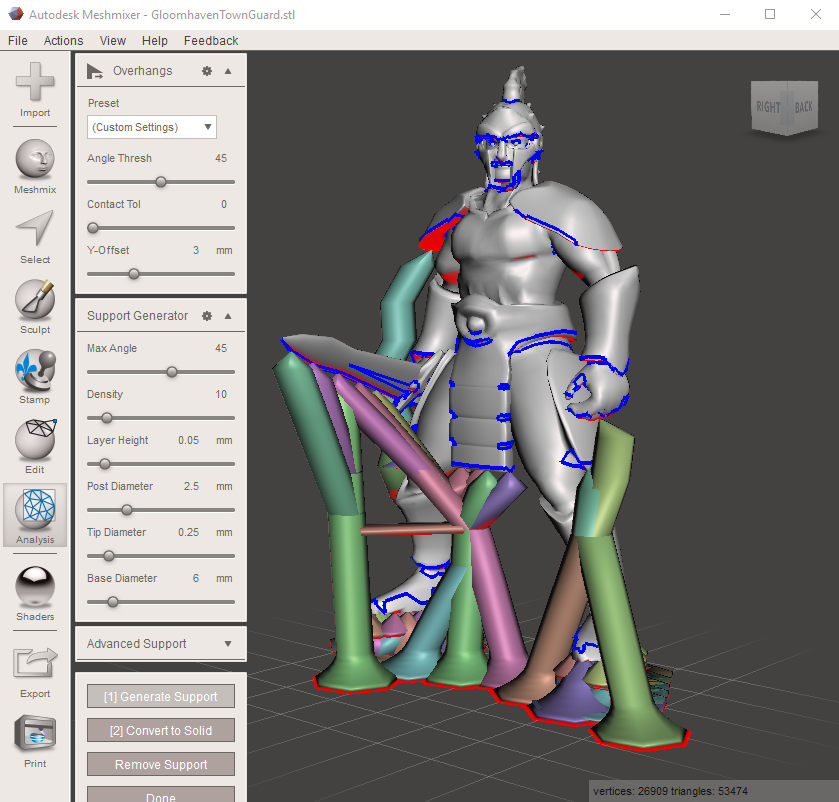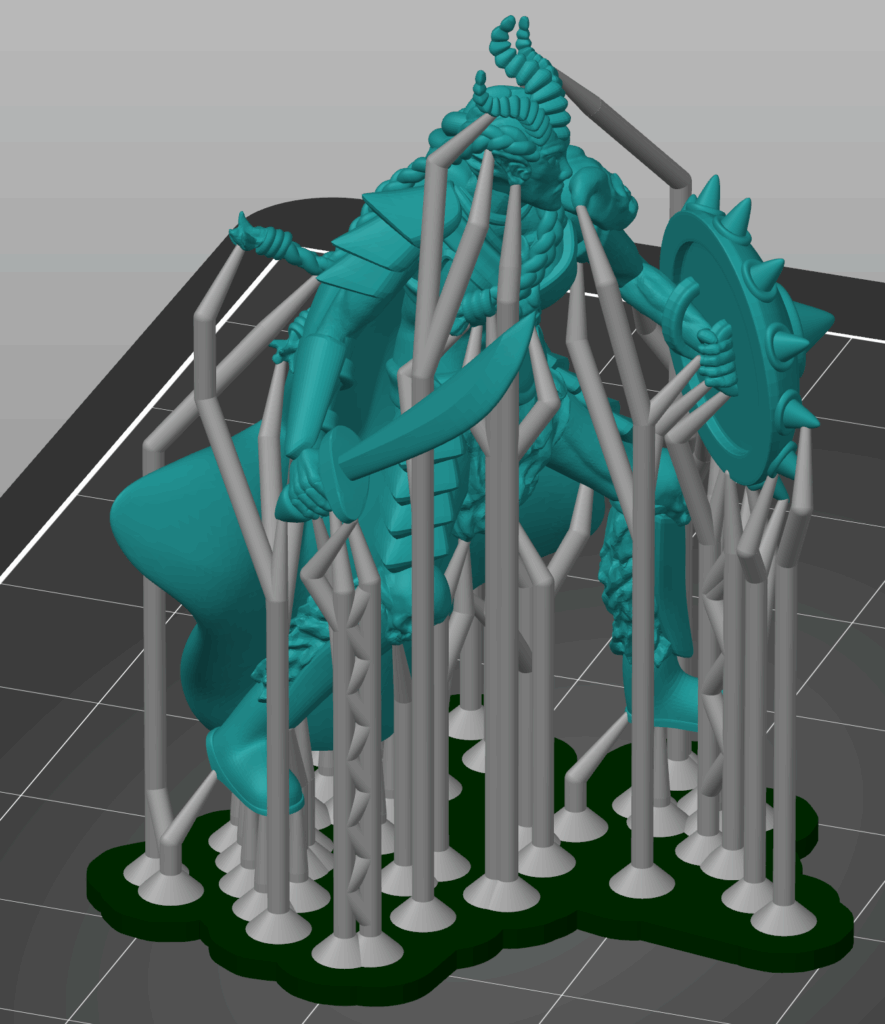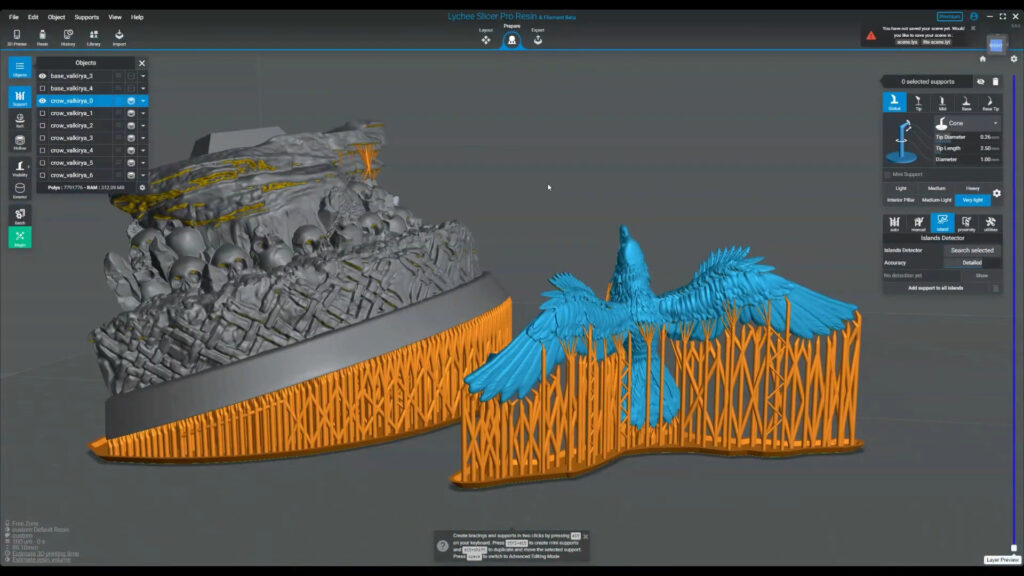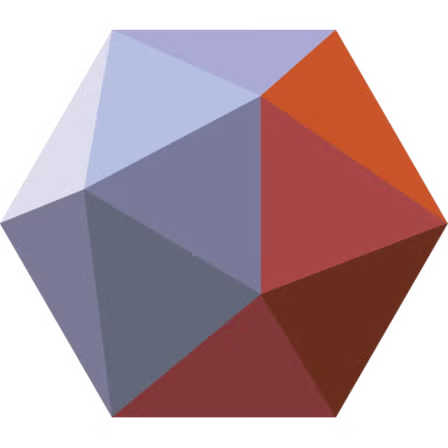Introduction to Tree Supports in 3D Printing
Tree supports represent an advanced approach to handling overhangs in the 3D printing process. These innovative supports replicate natural tree structures by extending upward organically, reducing the number and size of contact points. This not only facilitates easier support removal but also significantly reduces surface imperfections, saves material, and enhances the overall print aesthetics.

Several software tools excel in generating tree supports, notably Meshmixer, PrusaSlicer, and Lychee. This detailed guide thoroughly compares these three prominent platforms, highlighting their strengths, limitations, practical applications, and optimal usage scenarios.
Comprehensive Overview of Meshmixer Tree Supports
Meshmixer, developed by Autodesk, is well-regarded for its highly detailed and customizable tree support capabilities. Ideal for intricate, detailed models, Meshmixer provides extensive precision that is critical for professional-grade results.
Core Benefits of Meshmixer Tree Supports
- Exceptional Precision Control: Users gain unprecedented manual control over tree support placement, adjusting every minor detail to optimize print outcomes.
- Efficient, Lightweight Structures: Meshmixer generates slim and flexible supports, reducing material use significantly, and streamlining post-processing.
- Effortless Removal and Minimal Surface Damage: Supports are strategically positioned and slender, making removal easy and minimizing surface blemishes or damage.
Ideal Scenarios for Meshmixer
- Precision resin models requiring detailed surface finish.
- Jewelry prototypes, miniature figurines, and intricate engineering components.
- Complex models needing careful and strategic support placement.
Extensive Analysis of PrusaSlicer Tree Supports
PrusaSlicer, from Prusa Research, is known for balancing simplicity and advanced automation, making it suitable for a broad user base from beginners to professionals.

Major Advantages of PrusaSlicer Tree Supports
- User-Friendly Experience: The software’s intuitive interface simplifies the process of generating and adjusting tree supports, ideal for users with varying experience levels.
- Automated Support Optimization: Advanced algorithms automatically optimize support structures, greatly reducing manual intervention and ensuring reliable performance.
- High Consistency and Dependability: Ideal for repeated batch printing, ensuring consistent and reliable results across multiple prints.
Recommended Uses for PrusaSlicer
- General-purpose fused deposition modeling (FDM) projects.
- Medium to large-scale models needing reliable, consistent supports.
- Rapid prototyping scenarios, educational settings, and bulk production runs.
Detailed Exploration of Lychee Tree Supports
Lychee Slicer has rapidly gained prominence within the resin printing community due to its specialized and highly effective tree support structures specifically tailored for resin printing processes.
Principal Benefits of Lychee Tree Supports
- Specialized Resin Optimization: Lychee excels at creating tree supports specifically optimized for the requirements of resin 3D printing, ensuring maximum detail retention and minimal resin waste.
- Advanced Customization Features: Comprehensive customization options for branch thickness, contact point locations, and branching angles are available, giving users significant control.
- Efficient Workflow: Specifically tailored to resin printers, Lychee provides an optimized workflow for quickly generating effective supports.

Optimal Use Cases for Lychee
- Detailed resin prints such as jewelry and dental models.
- High-detail figurines and complex, precision-oriented components.
- Professional and industrial resin printing applications demanding meticulous control.
Detailed Comparative Analysis: Meshmixer vs. PrusaSlicer vs. Lychee
Ease of Use and Learning Curve
- Meshmixer: High customization, substantial learning curve; suitable for expert users.
- PrusaSlicer: User-friendly, minimal learning curve; perfect for beginners and intermediate users.
- Lychee: Intermediate ease of use, intuitive for those experienced in resin printing.
Level of Customization
- Meshmixer: Offers the highest level of detailed customization and precise support management.
- PrusaSlicer: Balanced automation and customization, with moderate manual intervention capabilities.
- Lychee: Resin-focused customization, providing detailed adjustments specific to resin materials.
Print Quality and Resource Efficiency
- Meshmixer: Outstanding print quality with minimal resource usage, ideal for detailed prints.
- PrusaSlicer: Highly consistent quality across a wide range of models, excellent resource efficiency.
- Lychee: Exceptional for resin applications, superior finish, minimal waste, high precision.
Choosing the Optimal Software: Real-World Scenarios
Scenario 1: Detailed Resin Miniatures
- Recommended Software: Meshmixer
- Reasoning: Superior control allows preservation of delicate details with easy support removal.
Scenario 2: Large-Scale Functional Parts
- Recommended Software: PrusaSlicer
- Reasoning: Automated and consistent support generation ideal for efficient mass production.
Scenario 3: High-End Resin Jewelry
- Recommended Software: Lychee
- Reasoning: Resin-specific optimization ensures minimal support scarring and detailed surface finishes.
Advanced Techniques for Effective Tree Support Usage
- Optimal Model Orientation: Strategically orient your model to minimize the necessity of supports, reducing material usage and enhancing print quality.
- Precision Contact Point Adjustment: Carefully adjust contact points to balance model stability with ease of removal.
- Branch Angle Experimentation: Experiment with branch angles and thicknesses to improve print stability and reduce resin pooling.
Troubleshooting Common Tree Support Issues
Difficult Support Removal
- Cause: Excessively large or dense supports.
- Solution: Decrease support density and reduce contact point size.
Poor Surface Finish
- Cause: Incorrect support placement or too many supports.
- Solution: Optimize model orientation and refine support positions, particularly with software providing high control like Meshmixer or Lychee.
Print Failures from Weak Supports
- Cause: Inadequate support density or improper branching.
- Solution: Increase support density and optimize support branching structure.
Essential Best Practices for Tree Supports
- Regular software updates ensure you benefit from algorithmic improvements.
- Tailor your software choice to specific model characteristics and requirements.
- Conduct small-scale test prints to fine-tune support parameters before larger projects.
Conclusion
Tree supports have fundamentally transformed 3D printing, significantly improving print quality, reducing material usage, and enhancing post-processing efficiency. Meshmixer, PrusaSlicer, and Lychee each offer unique features and strengths suited to different needs and scenarios. By understanding these differences, users can optimize their 3D printing workflows, ensuring high-quality, efficient, and successful outcomes across various applications.
